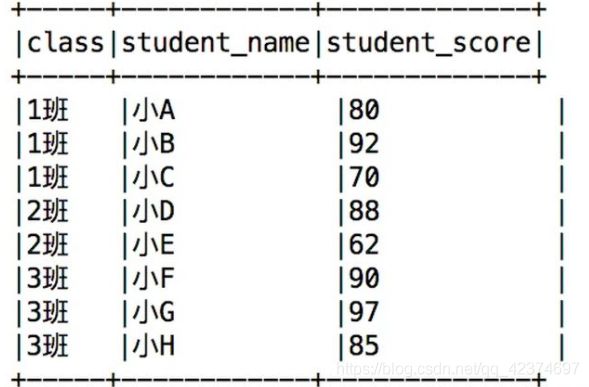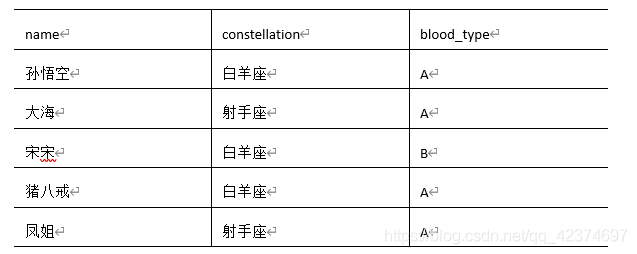Hive SQL中的 lateral view 与 explode(列转行)以及行转列
文章目录
- 一、列转行
-
- Explode炸裂函数
-
- posexplode()函数
- Lateral View
- 例子1
- 例子2
- 例子3
- 例子4——多列炸裂 Posexplode
- 例子5
- 例子6
- 二、行转列
-
- 例子1
- 例子2
一、列转行
行转列:将多个列中的数据在一列中输出
列转行:将某列一行中的数据拆分成多行
Explode炸裂函数
将hive某列一行中复杂的 array 或 map 结构拆分成多行(只能输入array或map)
语法
explode(col)
select explode(arraycol) as newcol from tablename;
explode():函数中的参数传入的是arrary数据类型的列名。
newcol:是给转换成的列命名一个新的名字,用于代表转换之后的列名。
tablename:原表名
如
explode(array)使得结果中将array列表里的每个元素生成一行
// 输入是array时,array中的每个元素都单独输出为一行
select(array('1','2','3'))
explode(map)使得结果中将map里的每一对元素作为一行,key为一列,value为一列,
select explode(map('A','1','B','2','C','3'))
通常,explode函数会与lateral view一起结合使用
posexplode()函数
对一列进行炸裂可以使用 explode()函数,但是如果想实现对两列都进行多行转换,那么用explode()函数就不能实现了,可以用posexplode()函数,因为该函数可以将index和数据都取出来,使用两次posexplode并令两次取到的index相等就行了。
详见例子4和例子5
Lateral View
Lateral View配合 split, explode 等UDTF函数一起使用,它能够将一列数据拆成多行数据,并且对拆分后结果进行聚合,即将多行结果组合成一个支持别名的虚拟表
语法
lateral view udtf(expression) tableAlias as columnAlias (,columnAlias)*
lateral view在UDTF前使用,表示连接UDTF所分裂的字段。
UDTF(expression):使用的UDTF函数,例如explode()。
tableAlias:表示UDTF函数转换的虚拟表的名称。
columnAlias:表示虚拟表的虚拟字段名称,如果分裂之后有一个列,则写一个即可;如果分裂之后有多个列,按照列的顺序在括号中声明所有虚拟列名,以逗号隔开。
Lateral View主要解决在select使用UDTF做查询的过程中查询只能包含单个UDTF,不能包含其它字段以及多个UDTF的情况(不能添加额外的select列的问题)。
Lateral View其实就是用来和想类似explode这种UDTF函数联用的,lateral view会将UDTF生成的结果放到一个虚拟表中,然后这个虚拟表会和输入行进行join来达到连接UDTF外的select字段的目的。
引用:hive中的lateral view 与 explode函数的使用

注:
1)lateral view的位置是from后where条件前
2)生成的虚拟表的表名不可省略
3)from后可带多个lateral view
3)如果要拆分的字段有null值,需要使用lateral view outer 替代,避免数据缺失
例子1
假设有如下movies表,字段名分别为movie(string)和category(array

转换为
select movie,category_name
from movies
lateral view explode(category) table_tmp as category_name;
-- 结果:
--《疑犯追踪》 悬疑
--《疑犯追踪》 动作
--《疑犯追踪》 科幻
--《疑犯追踪》 剧情
--《海豹突击队》 动作
-- ...
注:explode函数输入了一个string类型的参数,搭配split()函数
例子2
a b 1,2,3
c d 4,5,6
转换为
a b 1
a b 2
a b 3
c d 4
c d 5
c d 6
select col1, col2, col5
from test
lateral view explode(split(col3,',')) b AS col5
// split(col3,",")相对字符串切割,得到数组
注:explode函数输入了一个string类型的参数,搭配split()函数
例子3
应用文章的一个思考题
掌握这个SQL技巧超越80%的人——行转列/列转行
select uid_split, game
from (
select uid,game
from user_game
lateral view explode(split(game_list,",")) tmpTable as game
) a
lateral view explode(split(uid, ",")) m as uid_split
例子4——多列炸裂 Posexplode
前面提到:
对一列进行炸裂可以使用 explode()函数,但是如果想实现对两列都进行多行转换,那么用explode()函数就不能实现了,可以用posexplode()函数,因为该函数可以将index和数据都取出来,使用两次posexplode并令两次取到的index相等就行了。
引用例子来自:Hive中的explode使用全解
select
class,student_index + 1 as student_index,student_name
from
default.classinfo
lateral view posexplode(split(student,',')) t as student_index,student_name;
双列炸裂,转换成如下的形式
注:不能这样用!
select class,student_name,student_score
from default.classinfo
lateral view explode(split(student,',')) sn as student_name
lateral view explode(split(score,',')) sc as student_score
这样写的结果如下,不符合需求
可以进行两次posexplode,姓名和成绩都保留对应的序号,即使变成了9行,也通过where条件只保留序号相同的行即可。select
class,student_name,student_score
from
default.classinfo
lateral view posexplode(split(student,',')) sn as student_index_sn,student_name
lateral view posexplode(split(score,',')) sc as student_index_sc,student_score
where
student_index_sn = student_index_sc;
例子5
引用例子来自:https://blog.csdn.net/dzysunshine/article/details/101110467
转换成如下形式
single_id single_tim
a 2:00
b 3:00
c 4:00
d 5:00
f 1:10
b 2:20
c 3:30
d 4:40
一次posexplode
select id,tim,single_id_index,single_id
from test.a
lateral view posexplode(split(id,',')) t as single_id_index, single_id;d;
结果
single_id_index single_id
0 a
1 b
2 c
3 d
0 f
1 b
2 c
3 d
两次posexplode+where筛选
select
id,tim,single_id,single_tim
from
test.a
lateral view posexplode(split(id,',')) t as single_id_index, single_id
lateral view posexplode(split(tim,',')) t as single_yim_index, single_tim
where
single_id_index = single_yim_index;
例子6
select column1, column2, column3, m_key, m_val from
(select column1, column2, column3, map("X1", X1, "X2", X2, "X3", X3, "X4", X4) as map1
from table1) as t1
lateral view explode(map1) xyz as m_key, m_val
二、行转列
行转列:将多个列中的数据在一列中输出
列转行:将某列一行中的数据拆分成多行
Concat
concat(string1/col, string2/col, …)
输入任意个字符串(或字段,可以为int类型等),返回拼接后的结果
select concat(id,'-',name,'-',age)
from student;
Concat_ws
concat_ws(separator, str1, str2, …)
特殊形式的 concat(),参数只能为字符串,第一个参数为后面参数的分隔符
分隔符可以是与后面参数一样的字符串。如果分隔符是 NULL,返回值也将为 NULL。这个函数会跳过分隔符参数后的任何 NULL 和空字符串。分隔符将被加到被连接的字符串之间;
select concat_ws('-', name, gender)
from student;
Collect_set(聚合,返回数组类型)
collect_set(col)
将某字段进行去重处理,返回array类型;该函数只接受基本数据类型
select collect_set(age)
from student;
collect_set 与 collect_list 的区别就是set去重,list不去重
例子1
射手座,A 大海|凤姐
白羊座,A 孙悟空|猪八戒
白羊座,B 宋宋
select
t1.base,
concat_ws('|', collect_set(t1.name)) as name
from
(select name,concat(constellation, ",", blood_type) as base
from person_info) as t1
group by
t1.base;
例子2
张三 语文,数学,英语 98,95,89
李四 语文,数学,英语 97,88,90
select
stu_name,
concat_ws(',',collect_set(course)) as course,
concat_ws(',',collect_set(score)) as score
from student
group by stu_name
另外,行转列常用函数还有
case when <expr> then <result>…else <default> end
if(expr, true_result, false_result)
case when 语句是SQL中的一个非常重要的功能,可以完成很多复杂的计算,相当于一个表达式,可以放在任何可放表达式的地方。
语法 case when 条件 then 结果 when 条件 then 结果 else end。else可不加,是缺省条件下的值,如果不加,有缺省情况则为NULL。CASE WHEN还可以和GROUP BY 语句搭配使用,用在sum,count,max等聚合函数内部。
详情参见文章掌握这个SQL技巧超越80%的人——行转列/列转行
参考:
Hive SQL中的lateral view explode
https://zhuanlan.zhihu.com/p/142666980










